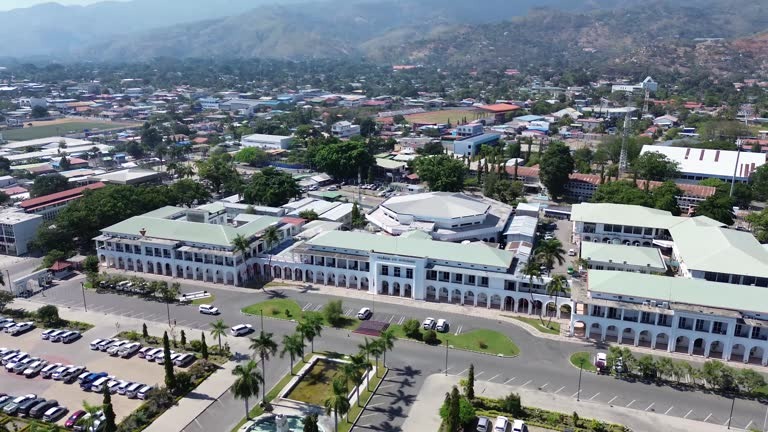Uncertain oil for an uncertain Timor-Leste future
What seemed to be the blessing for a country's beginning may be the curse towards its end?
1/8/20252 min read


Timor-Leste has overcome a number of challenges while trying to build up fundamental institutions necessary for the nation’s standing, even after its independence in 2002. The country, also known as East Timor, boasts of having oil, gas and minerals that have great potential considering their recent start. The government had put in place a system of scholarships for Timorese students studying abroad, investing in education and knowledge that will be useful for their future oil initiatives. Additionally, they’ve had agreements with international oil companies like the Australian Santos Limited and Japanese INPEX, to further grow their oil exploration processes. All of Timor-Leste’s oil revenues are deposited in the Petroleum Fund, accounting for $326 million of total petroleum revenue in 2020.
The problem, however, is that Timor-Leste is significantly dependent on oil and gas, a finite resource that has a debated and unsteady future in the developing world of tomorrow. The uncertain nature of this oil venture is proven to an extent by how oil and gas accounted for over 90% of the country’s revenues in 2017, a figure that dropped to 65% in 2020 due to the COVID-19 pandemic. To support this, a December 2022 World Bank report states, “Timor-Leste remains overly reliant on hydrocarbon production for sustaining its economy…without the oil revenues, the undiversified economy of the country will solely rely on the rapidly depleting Petroleum Fund to bridge the considerable fiscal gap in its annual budget”. This, of course, is a recipe for disaster.
Timor-Leste’s plans on oil and gas seemed ambitious, considering the fact that their fiscal deficit is one of the highest globally; 63.7% of their GDP in 2022. Unfortunately, their oil and gas production halted in 2023 due to various reasons: reliance on foreign workers from China and Indonesia, an undereducated population, infrastructural limitations, and bureaucratic obstacles. The struggle in attracting foreign direct investment worsened the situation, prompting the government to exceed its withdrawals from the Petroleum Fund that may be depleted by 2034. Furthermore, the lack of jobs despite a growing labour pool has led to a large number of Timorese migrating to destinations like Portugal and Northern Ireland. This brain drain makes it worse for any possible hopes in the future economic growth of the country.
For the country to prosper beyond its oil-rich capital city Dili, urgent economic development and diversification is crucial. One good area to focus on is agriculture; efforts to enhance agricultural productivity and sustainability will have many benefits. This includes, but isn’t limited to, boosting farmer incomes through increased small-scale agriculture productivity. Climate change may be a problem in agriculture due to much of Timor-Leste’s limited arable land being low-lying, and rising sea levels possibly reducing the amount available to farm. This can be curbed, however, through improved seed varieties, affordable efficient technologies, and superior storage methods.
Moreover, focusing on high-value agricultural commodities that are good for export may add onto the economic growth and revival that Timor-Leste needs, especially to compensate for the small domestic market. A good example is Starbucks exporting coffee beans from Timorese producers that were featured in specialty blends available in global cities that provided scale which wouldn’t be possibly available in Timor-Leste if not exported.
Image credit to Agung Wid, Getty Images.
Insights
Youth-led solutions for global challenges and issues.
Connect
sauondre@gmail.com
© 2025. All rights reserved.


